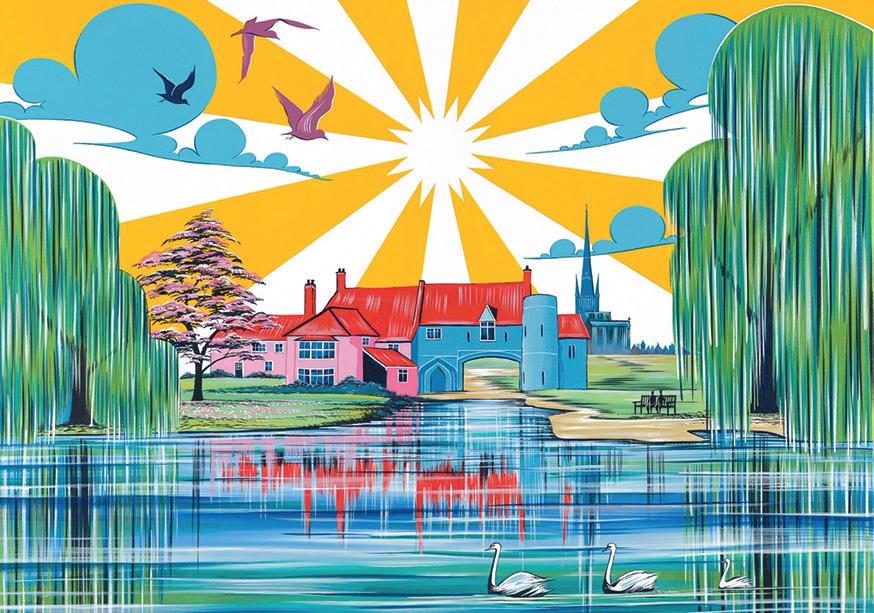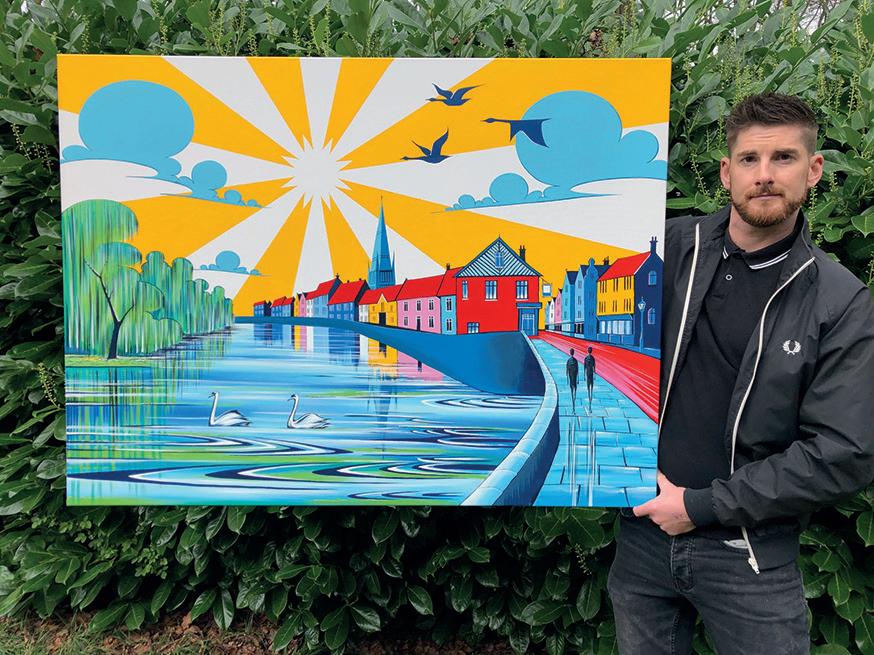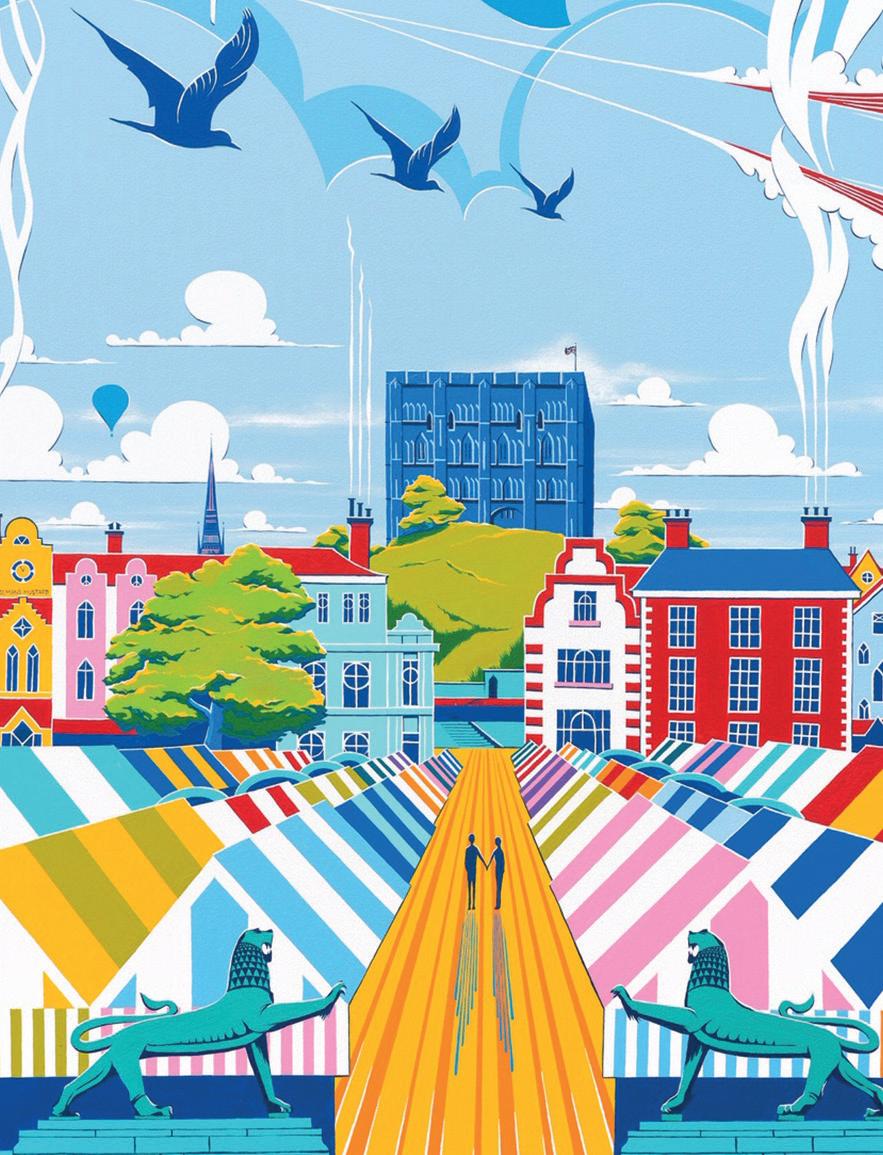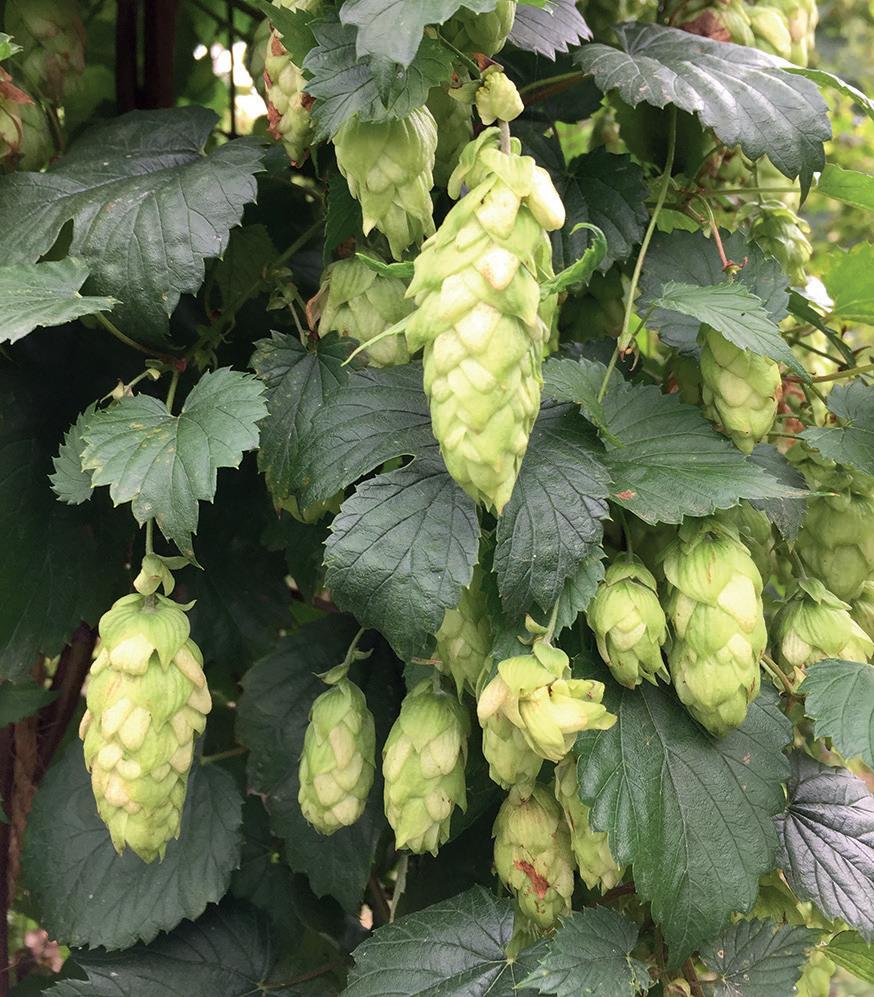
5 minute read
Artwork Radiating Hope & Optimism
We’re living in uncertain times right now with the effect of covid 19 and our new Lockdown Lifestyles that we now find ourselves living every day.
You may be wondering about the best ways to remain optimistic and hopeful during your everyday and looking ahead to the future.
Advertisement
Norwich-based artist Samuel Thomas shares his vision and tactics on how best to cope during our lockdown lifestyles. He suggests that practising daily appreciation of the small things, remaining hopeful in our mind-sets, showing daily gratitude and appreciation for the small joys within our everyday, being appreciative of nature and the fact that the sun is still shining whilst looking forward to better days ahead are all strategies we can all practise to help us stay resilient and optimistic at this time.
Samuel Thomas’ artworks embody these philosophies as the artist’s uplifting paintings have always been about projections of the self into a better future, because this faith and belief is in the very fabric of our human nature. The artist explains: ‘We all live in hope for the future, but we should also practise appreciating the smaller joys within our everyday, that we may have overlooked or taken for granted before our Lockdown lifestyles took effect. I think we’re all a bit guilty of this mentality in life, because it’s not until we suffer the threat of losing something that we then start to truly appreciate the value of those things and we then learn to be thankful for what we are blessed with. A crisis (despite how harrowing it can be) can help put our problems into perspective and allows us to gain clarity on our lives and focus on what’s really important in the short term and in the long term. My paintings have always been on a mission to persuade people to stop and pause, and to visually see and appreciate how much joy and beauty surrounds us in our everyday.’

Enjoy some of these paintings featuring some iconic Norwich views and wider Norfolk landscapes that will help you reconnect with the joys in your life and will help you feel optimistic and hopeful for the future that awaits you. After all, you ARE what you FOCUS on. Browse the artist’s online gallery to feel refreshed and uplifted and enjoy some ‘escapism’ during lockdown.





Nibbles &Tipples June

Article By Cheryl Cade, Beer Educator
There are very few rural businesses that do not have some level of diversity to them and these days, if you are a supplier to the hospitality sector, it is even more important.
This is definitely true of the Little Earth Project Brewery, based in a historic barn next to White Horse Inn, Edwardstone, Sudbury.
Tom, the brewer, first started to brew cask ale for the pub and local outlets to support the pub and farm. Seven years later, they laid down their first ‘Wild’ beer, ready for launching of Little Earth Project in 2016.
This was a labour of love at a time before sour / wild fermented beers were becoming popular. Tom used yeast from their cider production to bring to East Anglia beers that would rival some of the top Belgian producers of Lambics and Gueze.
These beers take a long time to mature; wild yeast and bacteria from the inside of the wooden barrels impart a depth of flavour (raisins, balsamic, oak) that when compared to a kettle sour (made using citric acid) transports you back to days of yore. Before our understanding of yeast and bacteria, English beer was known for its tart finish.
The great thing about Little Earth Project is also the aspect of foraging; local herbs and fruits are used to bring more dynamism to the beer. They grow their own hops and use local barley, harking back to how beer was local to the region and terroir of the area.
The White Horse acts as Little Earth's tap, a haven in the rolling hills of Suffolk for delicately balanced wild beers, cider and cask ales, paired perfectly with food, a wild beer's soul mate.
Staying over the border with some more tipple, a brewery founded in 2018, Krafty Braumeister, is also bound in heritage. The heritage of Germany, Uli first started to brew in the historic fertile crescent where brewing and farming began.
Nowadays it's very hard to find good beer in Baghdad so Uli and family learnt the complex art of homebrew in 40° heat. On returning to the UK Uli brought his love of beer to Leiston.
Studying and researching traditional German brews, Uli noted a gap in the market for these in the UK, the beers he had drunk growing up were not all lager, but ales.
All of his beers followed the Reinheitsgebot (a German purity law). The carbonation in keg or bottle is achieved using fresh Wort being added to the beer and the residual yeast using this to give this beer its high fizz and expected 3-inch head when poured.
The yeast also helps to impart flavour, including cloves in the Wheat beer, Blau&Weissbier, while adding that visual cloudy note.
Uli has also brought to the region beers rarely seen this side of the channel, dark, malty Altbier.
Golden yellow, Kölsch, which should be sweet yet have a clean mouthfeel. All these beers in their unfiltered state also have additional health benefits as they do not lose their vitamins or minerals. This summer these beers are a perfect accompaniment to your BBQ.
Both breweries are currently supplying beer directly, so check out their websites.
You will also find a lot of your local breweries, farm shops, pubs & restaurants offering some delivery service, keeping them going in these, interesting times.
Cheers, until next month. Cheryl

Visit: https://cherylcade.com










